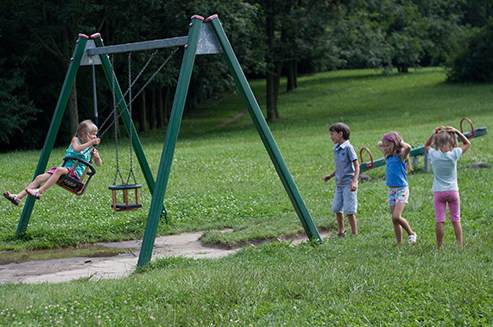Which form is better? Which is more correct? According to Professor Bogusław Dunaj, a linguist from the Jagiellonian University, both are correct and they differ in the range of occurrence. Therefore, it is not a mistake if we write “into the field” [na pole] instead of the dominant “outdoors” [na dwór].
Regional languages surprise those who for the first time talk to a person from Cracow or visit this city. Some people don’t like it, some feel offended or even outraged. It causes many misunderstandings. One anecdote says for instance about a tourist in Cracow who wanted to buy a cabbage. To do it, she came into a grocery and asked: “Is there a cabbage?” and a saleswoman responded: – “Bring it by yourself from the field” (outside, in front of the grocery).
Apart from Cracow’s “into the field”, particularly many misunderstandings are caused by regionalisms connected with food products, fruit and vegetables. The visitors are surprised by, among other things “weki” (instead of “bułki” – bread rolls), “jarzyny” (instead of “włoszczyzna” – mirepoix), “sznyclel” (instead of kotlet – chop), “kwaśne mleko” (instead of “zsiadłe” – curds), “grysik” (instead of “kasza manna” – semolina), “kanapka” (instead of “kromka” – slices of bread), “chrust” (instead of “faworki” – fried pastry strips), “czernice” (instead of “jeżyna” – blackberries). Only in Małopolska does “drożdżówka ” mean various (and not only made of yeast) kinds of pastry which may consist additionally of, for instance, “jagody” (blueberries) (instead of “borówki”) or “ze serem” (instead of “z serem” – with cheese”). At a meal, one may sip water “ze sokiem” (not “z sokiem” – with juice).
You can also recognise a citizen of a Cracow by the fact that he says “we czwartek” instead of “w czwartek” (on Thursday), he wipes out “proch” instead of “kurz” (dust) from the shelves, he often calls Christmas Tree “drzewko”, rather than “choinka”, and upon it he hangs not “bombki” but “bańki” (baubles). “Bławatki”, not “chabry” (cornflowers) grow in the field.
Professor Dunaj points out that there is nothing bad in regionalisms: “Some dose of regionality will not do any harm. There is also no reason to combat them because they determine just a small per cent of our vocabularies and appear in every literary language,” notes the linguist in a conversation with the Polish Press Agency.
He also adds that Polish nationwide forms are getting more and more common, and that some of the regionalisms are going out of use but they are replaced by new ones. For example “kasza tatarczana” in Cracow was replaced by the nationwide “kasza gryczana” (buckwheat groats). However, linguists have recently noticed that the word “fliziarz” (a person who lays flagstones or tiles) is only to be found in Cracow’s press. In the remaining regions of Poland a person who lays tiles is called “płytkarz”, “glazurnik” or “kafelkarz”.
Author: Beata Kolodziej /Polish Press Agency
Photo © Anna Karahan/Link to Poland



